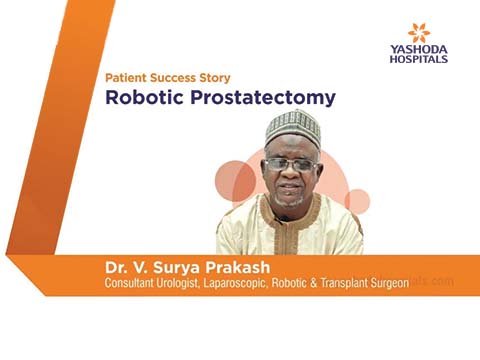- 24/7 Appointment Helpline
- International
- Home
- About
- News
- Locations
- Specialities
- Arthroscopy & Sports Medicine
- General Medicine
- General Surgery
- Pain Management
- Bariatric Surgery
- Gynaecology
- Pediatrics
- Pediatric Surgery
- Cancer (Oncology)
- Radiation Oncology
- Heart & Lung Transplant
- Physiotherapy
- Cardiology
- Hematology & BMT
- Plastic Surgery
- Critical Care
- Interventional Radiology
- Pulmonology
- CT Surgery
- Kidney Transplant
- Radiology
- Dermatology
- Liver Transplant
- Rheumatology
- Emergency Services
- Robotic Science
- Endocrinology
- Multiorgan Transplant
- Spine Surgery
- ENT
- Head & Neck Cancer
- Nephrology
- Neurosciences
- Lung Transplant & Thoracic Surgery
- Medical Gastroenterology
- Surgical Gastroenterology
- Nuclear Medicine
- Urology
- Orthopaedics
- Ophthalmology
- Vascular Surgery
- Pancreas Transplant
- International Patient
- Patient Info
- Blog
- 914045674567 – 24/7 Helpline
- 04066000066 – International
- Home
- Specialities
- Arthroscopy & Sports Medicine
- Bariatric Surgery
- Cancer (Oncology)
- Radiation Oncology
- Cardiology
- Critical Care
- CT Surgery
- Dermatology
- Emergency Services
- Endocrinology
- ENT
- Head & Neck Cancer
- Medical Gastroenterology
- Surgical Gastroenterology
- General Medicine
- General Surgery
- Gynaecology
- Heart & Lung Transplant
- Hematology & BMT
- Interventional Radiology
- Kidney Transplant
- Liver Transplant
- Multiorgan Transplant
- Nephrology
- Neurosciences
- Nuclear Medicine
- Ophthalmology
- Orthopaedics
- Pain Management
- Pediatrics
- Pediatric Surgery
- Physiotherapy
- Plastic Surgery
- Pulmonology
- Radiology
- Rheumatology
- Robotic Science
- Spine Surgery
- Lung Transplant & Thoracic Surgery
- Urology
- Vascular Surgery
- Pancreas Transplantation
- Treatments
- Procedures
- International Patients Info
- Book Doctor Appointment
- Locations
- Health Checks
- Patient Info
- Health Blog
- About Us
- News
- Reports
- Education
- Careers
- Contact Us
-

Book Doctor
Appointment -

Free Medical
Opinion -

Chat on
WhatsApp
Patient Testimonial for Transcatheter Aortic Valve Replacement
Testimonial by Mr. Mohammed Yousuf
Transcatheter Aortic Valve Replacement (TAVR) is a minimally invasive procedure used to treat severe aortic stenosis, a condition characterised by the narrowing of the aortic valve in the heart.
During a TAVR procedure, a catheter with a collapsible artificial valve is inserted through a small incision, usually in the groin or chest, and guided to the site of the narrowed aortic valve. The replacement valve is then expanded, pushing the old valve leaflets aside and allowing the new valve to take over the function of regulating blood flow.
TAVR is typically recommended for patients with severe aortic stenosis who are considered at high risk for open-heart surgery due to factors such as advanced age, frailty, or the presence of other medical conditions. However, TAVR is also increasingly being used in intermediate-risk patients and has shown favourable outcomes in these populations as well.
Mr. Mohammed Yousuf from Hyderabad successfully underwent TAVR for Severe Aortic Stenosis at Yashoda Hospitals, Hyderabad, under the supervision of Dr. Bharat Vijay Purohit, Senior Consultant Interventional Cardiologist and Director of Cath Lab.
Other Testimonials
Mrs. Shakuntla Kundu
Osteoarthritis is caused by the slow destruction of the protective cartilage...
Read more
Mrs. Bhavana
A high-risk pregnancy is one in which the mother or foetus has an increased...
Read more
Mr. Sanu Umer Musa
Prostate cancer is one of the most common cancers diagnosed in men. Robotic...
Read more
Mrs. Minati Adhikari
Revision knee replacement surgery is used to replace a previously implanted...
Read more
P. Narsing Rao

In the year 2013, when I was diagnosed with cancer it created a wide sense of...
Read more
Mrs. P. Nagurumma
"In 2015, my mother was diagnosed with Stomach Cancer and we consulted a few...
Read more
Mrs. Gayatri Aluri
A coma is defined as a state of complete lack of arousal and awareness that...
Read more
Ms. Asha Abdikarim Mohammed
Uterine fibroids, which are also known as leiomyomas, are benign growths that...
Read more
Mr. B. S. Moses Dayan
Mr. B. S. Moses Dayan from Hyderabad successfully received treatment for Rectal...
Read more
Mr. Lino Guido
The great support system at Yashoda Hospitals really helped me while being...
















